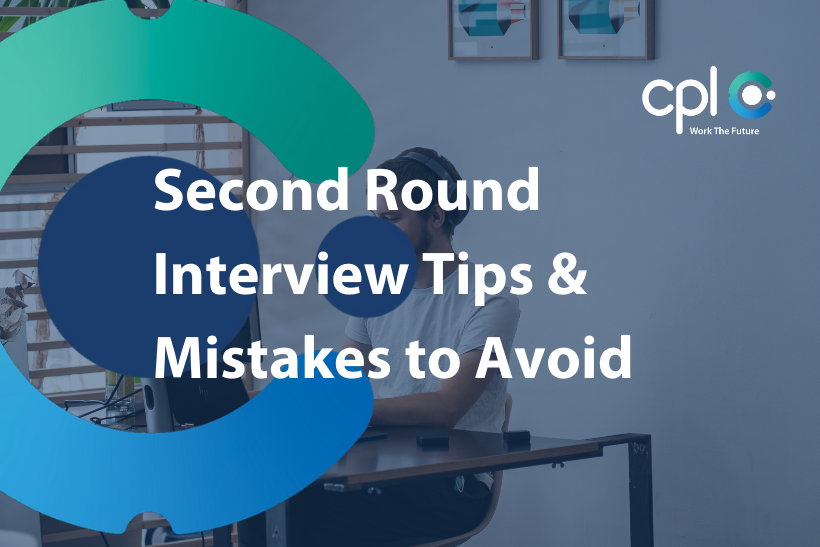You did it! You flew through the first round, and your second-round interview has been set up. This means the company is interested in you and you are definitely in the running for the job. The next step is acing the second round, so here is what you need to know to do this. Firstly, when preparing for your second round interview, you must avoid making these mistakes.
8 Second interview mistakes to avoid
Dressing inappropriately – even if the interview is remote
Arriving or logging in to the interview too early or too late
Checking your phone
Not researching the job or company
Losing focus during the interview
Talking too much or too little
Speaking negatively about past jobs
Lacking enthusiasm
Instead, you need to prepare how you are going to make an excellent impression and leave the interviewers satisfied confident in your skills and passion for the role.
Second round interviews usually involve more detailed interview questions about the applicant, such as their qualifications, work history and ability to perform.
Second interview tips and questions
To prepare for the interview and show you're a good fit, you should follow these guidelines:
Reflect on your first interview
Ask yourself was there anything you forgot to say in your first interview, now is your time to bring it up. The second round is also your chance to revisit any questions you feel were not answered well the first time. If you feel like nerves could get in the way and your second interview is via video, make a list ok key points you want to articulate and have it to hand.
Get to know your interviewers!
You should be told in advance who will be interviewing you and if you are not do ask as it is important to know your audience. You should check their profile on the company website and LinkedIn (no harm in connecting with them here) and get to know their position. By doing this and getting to know them, it will help with asking questions throughout i.e. about their team, their role, systems they use etc.
Prepare for every potential question
The second-round interview will have more in-depth behavioural questions. Some may have been asked in the first round but prepare for them again and have strong examples for each and relate them to the specific role you are interviewing for. It’s also a good idea to prepare to address salary expectations at this stage.
Examples of questions asked in a second-round interview:
Tell me a few things you would do in this role?
Tell me about a time when you changed your priorities to meet others' expectations?
Describe a time when you altered your own behaviour to fit the situation.
Tell me about a time when you used your knowledge of the organization to get what you needed.
Tell me about a time when you improved the way things were typically done on the job
Prepare your own questions
This is more than likely your last chance to ask questions. Your questions are asked for you to get to know the role, the team, their strategy and their expectations. If you are concerned about anything regarding the role or the company, now is your time to ask. You can find some good examples of questions to ask that will highlight potential challenges here.
By asking these questions you will also see if the role is suited to you and your standards. Culture fit is so important, you should also ask about the organisations culture so you can decide if you would be a good match for the company. For example, what do you enjoy about working here? What would you say is the best thing about the team? How would you describe the work-life balance?
Practise your final pitch
This is your time to tell them why you are perfect for the role and to articulate genuine interest in the company. It must be persuasive, and you must convince them you are the best person for the job. This is your last chance to shine!
Overall, remember just like your first interview, a successful second interview relies on comprehensive preparation and thoughtful responses, so make sure you are prepared.
